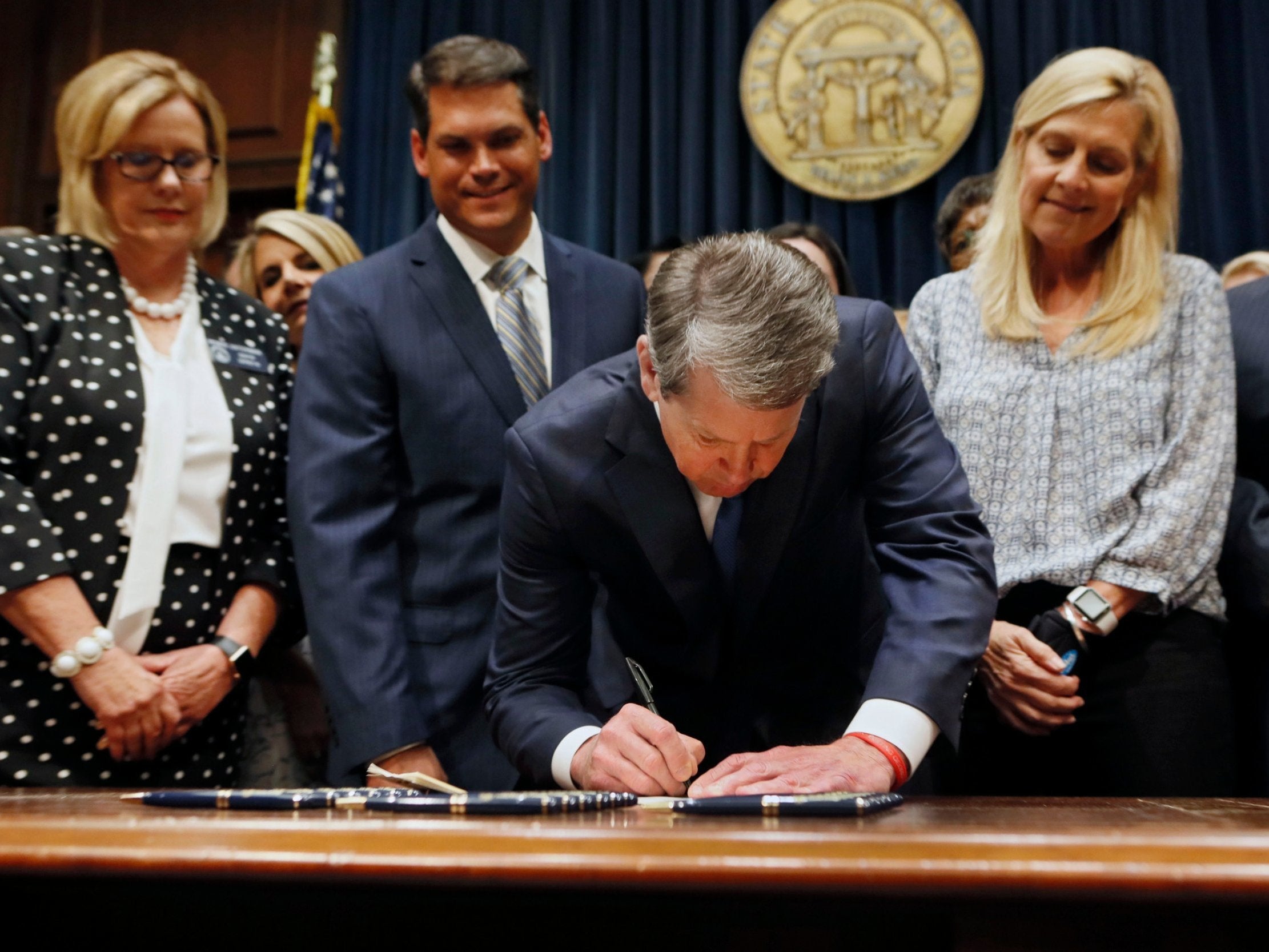Judge strikes down Kentucky law restricting abortions after 15 weeks
Measure found to 'unduly burden' women

Your support helps us to tell the story
From reproductive rights to climate change to Big Tech, The Independent is on the ground when the story is developing. Whether it's investigating the financials of Elon Musk's pro-Trump PAC or producing our latest documentary, 'The A Word', which shines a light on the American women fighting for reproductive rights, we know how important it is to parse out the facts from the messaging.
At such a critical moment in US history, we need reporters on the ground. Your donation allows us to keep sending journalists to speak to both sides of the story.
The Independent is trusted by Americans across the entire political spectrum. And unlike many other quality news outlets, we choose not to lock Americans out of our reporting and analysis with paywalls. We believe quality journalism should be available to everyone, paid for by those who can afford it.
Your support makes all the difference.A Kentucky judge has struck down a law that prohibited a method of abortion commonly used in the second trimester, saying the measure would create a “sustainable obstacle” to a woman’s right to choose.
US district judge Joseph McKinley Jr ruled on Friday that the state’s law violated a woman’s constitutional right to privacy.
The law, aimed at halting dilation-and-evacuation (D&E) terminations, was found to “unduly burden” women seeking abortions.
The state’s lawyers argued that the law would still allow use of D&E, but only after doctors used other methods to induce fetal death. Abortion providers breaking the law would be guilty of a felony but patients would not face prosecution.
The judge the legislation would require women seeking a second-trimester abortion at and after 15 weeks to “endure a medically unnecessary and invasive procedure that may increase the duration of an otherwise one-day standard D&E abortion”.
Judge McKinley wrote: “If the act goes into effect, standard D&E abortions will no longer be performed in the commonwealth due to ethical and legal concerns regarding compliance with the law.”
He noted that under the provision women would lose “the right to obtain a pre-viability abortion anywhere in the commonwealth of Kentucky after 15 weeks”.
Judge McKinley’s decision was celebrated by abortion access advocates and the American Civil Liberties Union. An ACLU lawyer, Alexa Kolbi-Molinas said it “affirms that health, not politics, will guide important medical decisions about pregnancy”.
The D&E procedure was used in 537 of 3,312 abortions in Kentucky in 2016, according to state statistics.
Kentucky's governor Matt Bevin said he would appeal the decision, which came as a wave of restrictive abortion laws known as "heartbeat bills" swept the southern US.
These bills, which restrict abortion beyond the point of a detectable foetal heartbeat at roughly six weeks, are effectively backdoor abortion bans as many women do not know they are pregnant at that point.
Many states, including Georgia, Ohio, Alabama, Louisiana, and Mississippi have attempted to introduce some form of heartbeat bill.
Some celebrities have vowed to boycott work in Georgia due to its recent passage of such a law. Others, like Jordan Peele, have reportedly said they will continue working in the state, but donate fees to the ACLU.
Others the new wave of anti-abortion legislation. “For pro-life folks, these are huge victories,” said Sue Liebel, who serves as a state director for the Susan B Anthony List, an anti-choice group.
“And I think they’re indicative of the momentum and excitement and the hope that’s happening with changes in the Supreme Court and having such a pro-life president.”
Additional reporting by AP
Join our commenting forum
Join thought-provoking conversations, follow other Independent readers and see their replies
Comments